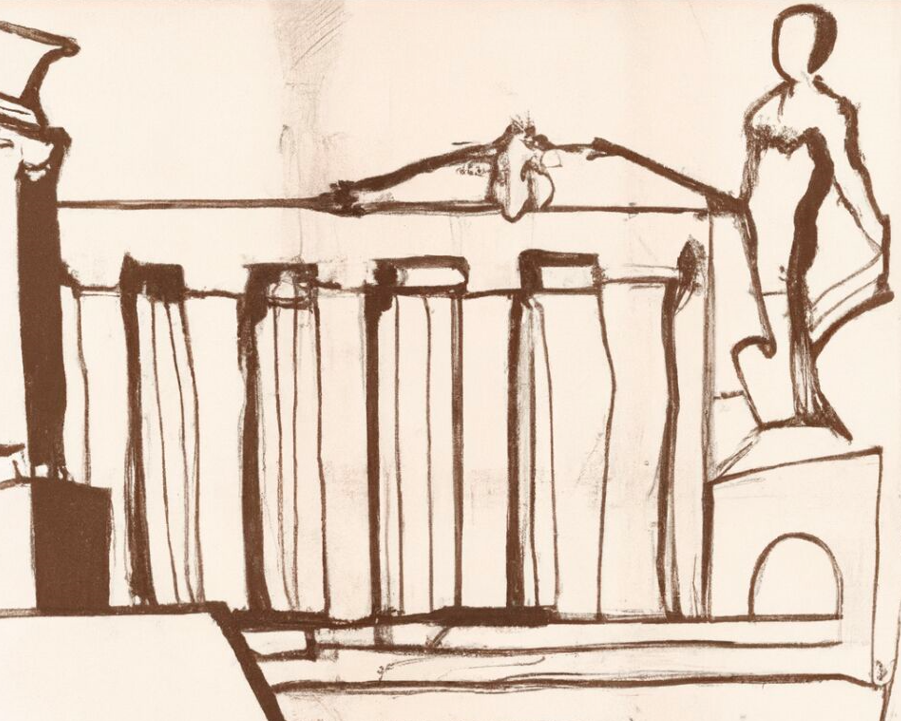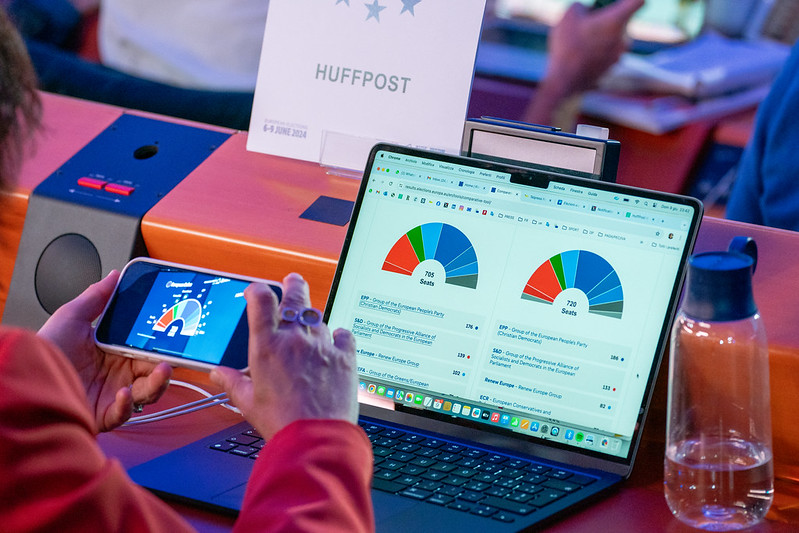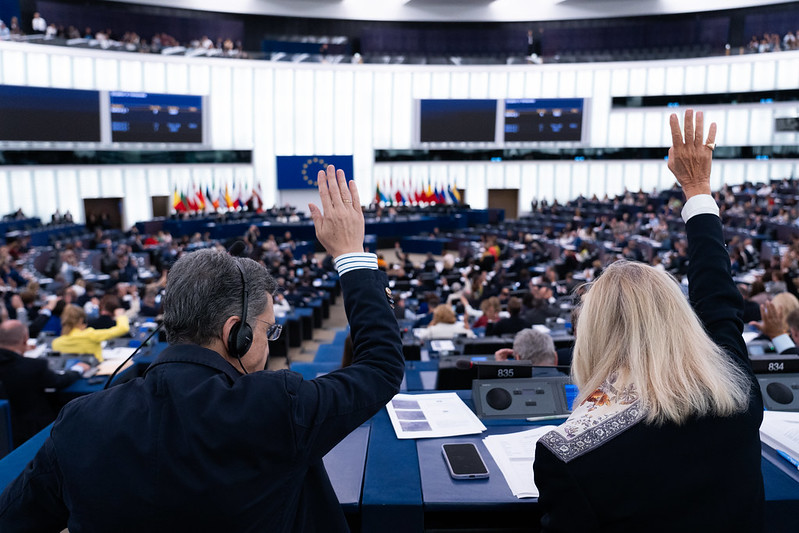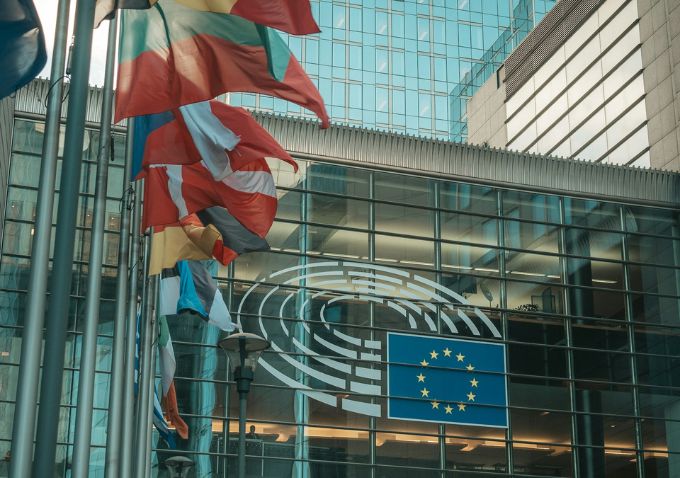As the EU enters a new policy cycle, we anticipate a shift in its cultural policy as well. The direction the EU takes on culture will depend on broader political priorities, the economic landscape, and global dynamics. It will also be strongly shaped by the political leanings of the forces that will guide the EU’s culture agenda over the next five years. Last month, Commission President Ursula von der Leyen announced the College of Commissioners. Malta’s Glenn Micallef, the youngest nominee, was assigned the portfolio for intergenerational fairness, youth, culture, and sport.
Micallef is a member of the Labour Party, which not only included a chapter on culture in its electoral manifesto but also explicitly promotes better working conditions for artists and cultural workers while championing access to culture for all. Malta’s cultural policy, developed under the current Labour government, is quite ambitious - at least in its rhetoric - recognising culture as a public good, advocating for cultural rights, adopting a pro-European stance, and acknowledging culture’s role in climate action. This is rather positive, as culture holds a distinct place in the portfolio's name and is assigned to a representative of a party that broadcasts a progressive cultural policy discourse. Being connected with the new mission of intergenerational fairness also suggests the recognition of culture as a component of social justice and a foundation for building a fair future.
The Commission President’s mission letter to Micallef, issued on the day of his nomination, is another source of hope. The culture portfolio is no longer limited to brief references to Creative Europe, the need to preserve cultural heritage, or culture’s contributions to European identity, growth, jobs, international relations, and innovation, as it was in the previous Commission President’s mission letters. Instead, it addresses the core issues faced by the sectors themselves and acknowledges the need for a more strategic approach to culture at the EU level. The listed priorities include developing a strategic framework for culture, improving working conditions in the cultural and creative sectors, harnessing the competitive potential of creative industries, enhancing access to cultural heritage, and establishing an artificial intelligence strategy for the cultural and creative sectors.
The Commissioner’s profile and the President’s mission are just part of the overall picture. The European Parliament, particularly the Culture and Education (CULT) Committee, plays a vital role in shaping the future of the EU’s cultural policy. To begin with, the Committee Members will evaluate the Commission-designate following a dedicated confirmation hearing, having the right to approve or oppose his candidacy.
Additionally, the Parliament is instrumental in guiding the decision-making process by drafting, amending, and adopting legislative proposals and own-initiative reports. It sets the legislative agenda, contributes to the Commission’s annual work programme, raises awareness of key issues through expert hearings, and oversees the actions of other EU institutions and bodies.
"The newly formed CULT Committee leans more right-wing than its predecessor (2019-2024), potentially heightening tensions between national cultural identities and European integration. While strong advocates for Europe as a cultural power are few, the Committee’s core consists of centre-right (EPP) and centre-left (S&D) groups."
--

The new Culture & Education Committee
What priorities will the newly formed Committee promote? What discourse will it advocate, and what understanding of culture will it represent? Are the new Members prepared to advocate strongly for culture in a time of crisis and multiplying urgencies? As the political landscape of the Parliament has shifted, it is time for culture advocates to assess whether the current Committee is a ready-made ally or a challenge to navigate around in the next five years.
The newly shaped CULT Committee includes 30 full members, representing all eight European political groups and being overall more right-wing than its predecessor (2019-2024), just like the European Parliament itself. The core of the Committee is composed of the centre-right (European People’s Party), and the centre-left (Socialists & Democrats) groups.
The most represented political group is the European People’s Party (EPP), which occupies eight seats. They view culture as integral to the ‘European way of life’ and propose establishing a Digital Museum of European Culture that connects all major museums across Europe, as well as creating the European Cultural Heritage Fund. The second-largest group within the Committee, the Progressive Alliance of Socialists and Democrats (S&D), holding six seats, does not provide a specific or ambitious cultural programme; instead, it lists cultural access as part of the broader concept of ‘social rights’, alongside education, healthcare, housing, employment, and social security.
The Patriots for Europe, the third-largest group in the Committee (with four members), is the newly established coalition, that includes Fidesz (Hungary), the National Rally (France), League (Italy), Vox (Spain), Action of Dissatisfied Citizens (Czech Republic), Freedom Party (Austria), Party for Freedom (the Netherlands), Vlaams Belang (Belgium) and Latvia First among others. The Patriots for Europe party believes in a ‘Europe of strong, proud, and independent nations’ and is committed to protecting Europeans from any ‘threats coming from the political, economic, religious, and cultural spheres’.
The European Conservatives and Reformists (ECR) Group, represented by three members, does not emphasise a strong position on culture in its priorities, although it includes some references to Europe’s cultural diversity. The Renew Europe group, which also lacks a substantial cultural programme, is represented by three members. The Greens/European Free Alliance group, typically the most progressive and inclusive regarding culture compared to other groups (though this is not clearly reflected in the current vision), is represented with only two members, one of whom is the Committee chair. Two members are delegated from the European United Left - Nordic Green Left (GUE/NGL), which does not prominently feature culture. One MEP in the Committee is affiliated with the Europe of Sovereign Nations Group, a new political group comprising far-right parties, such as Alternative for Germany (AfD). Finally, one MEP belongs to the right-wing party Democratic Patriotic Movement ‘Niki’ (Greece), which is not attached to any of the European political groups.
Beyond the European political groups, the members of the Committee also have their national party affiliations. The thirty members collectively represent 28 national political parties (with two MEPs from the same national party and one not representing any). We have reviewed the manifestos and programmes of these 28 parties to gain insight into their cultural policy visions and provide a snapshot of the new Committee’s standpoints.
There is no single culture-related issue that appears in all manifestos or is approached similarly in most of these programmes. The themes most frequently covered include access to culture, culture as a tool for building and promoting national identities, cultural heritage, and artists’ working conditions. Let’s start with the latter.
"Access to culture is a common concern among parties, though rarely seen as a broad framework for universal access. Instead, many programmes focus on specific aspects, like museums, libraries, or archaeological sites, and target particular groups, most often youth, the elderly, and people with disabilities."
--

Artists’ working conditions across the political spectrum
Improving working conditions is a priority reflected in the manifestos of national parties from different corners of the political spectrum. This issue is particularly prominent in the programmes of parties affiliated with the S&D group. One of the key proposals at the EU level - establishing a European ‘common regulatory framework to improve the social and professional conditions of artists and cultural operators’ - comes from Italy’s Democratic Party, represented in the Committee by Sandro Ruotolo. Another S&D party, Poland’s New Left, pledges to end ‘artistic poverty’ by creating a social insurance system for artists, managed by dedicated associations. Furthermore, the Socialist Party of France, represented on the Committee by Emma Rafowicz (one of the four Committee vice-chairs), advocates for ‘secure artistic careers’ through enhanced support for professionals, referencing a new regime for authors and promoting gender parity. Another example is the Social Democratic Party of Austria that highlights social security and appropriate remuneration for artists as matters of social democracy and social justice.
The Five Star Movement (Italy), representing the Parliament's Left group in the Committee, proposes a supplementary compensation system for artists. This system includes an economic relief mechanism for periods of inactivity and for those struggling to sustain a decent living from their income. The Republican Left of Catalonia (Greens/EFA Group) advocates establishing a tax and social security regime in Catalonia adapted to the needs of the various cultural agents through the approval of the artists' statute.
The largest group within the Committee, the EPP, includes several parties that have developed plans to improve artists' working conditions in their respective countries. The Civic Platform from Poland, represented by Bogdan Andrzej Zdrojewski (one of the vice-chairs), aims to introduce a law on the status of artists, guaranteeing artists a minimum level of social protection, access to social and health insurance, taking into account the specific nature of their work. Similarly, Spain's People's Party has pledged to enhance and finalise the artist's statute, with measures such as simplifying the unemployment benefit system, modernising the retirement system, and promoting tax incentives to support artistic and creative activities.
Some right-wing MEPs also address artists' working conditions in their national party programmes. The Our Homeland Movement (Hungary), part of the Europe of Sovereign Nations Group, acknowledges the unfair ‘moral’ and financial conditions cultural workers, ‘who have dealt with our cultural values day after day’, face and proposes creating a ‘career model’ tailored to the unique characteristics of each sector. The Bulgarian party 'There Is Such a People,' part of the ECR group, outlines several concrete measures. These include establishing a specialised register of freelance artists and private cultural organisations, developing copyright legislation fully aligned with EU requirements, reviewing the process for setting minimum wages in the sector, and creating a detailed job classification for cultural professions within the labour code.
"The issue of artists' working conditions, featured in the Commission President's mission letter, appears in several national party manifestos across the political spectrum, with most initiatives proposed by S&D parties. This raises hopes for progress following the European Parliament's resolution on the EU framework for artists. However, only a tiny minority of parties explicitly endorse a consolidated EU approach on this issue."
--

Funding for culture and artistic freedom
Funding for culture also appears to be an important issue for the majority of parties. Several are committed to increasing public budgets for culture, while many focus on stimulating alternative ways to support the cultural and creative sectors, such as through philanthropy and private investment. For instance, the People's Movement Party (Romania, Renew Europe) plans to introduce a patronage law, and the Republican Left of Catalonia (Greens/EFA) proposes improvements to the existing patronage system.
For some parties, typically those on the right wing, the issue of funding revolves around rebalancing public funding or determining which aspects of culture should receive support and which should not. The programme of the Democratic Patriotic Movement ‘Niki’ (Greece) states: ‘The Greek people cannot be taxed to satisfy the uncontrollably strange needs of artistic self-expression for low-quality creations that display vulgarity and antisocial behaviour’, further clarifying that public support should focus on cultural activities that prioritise ‘engaging young people with our traditions and reviving traditional arts and customs’. Similarly, The Our Homeland Movement (Hungary) seeks to eliminate state funding for ‘false artistic works labelled as progressive, which ultimately lack real value’, and shift the emphasis toward works that ‘present the values, true identity, and historic traditions of the nation’. They describe the current distribution of funding as an ‘injustice’. Rassemblement National (France, Patriots for Europe) also proposes measures for redistributing public funding to balance public spending, with 50% allocated to heritage and 50% to creation.
The intention to prioritise certain content over others is not limited to redistributing funds. Some parties are explicit about the need to stop showcasing culture that does not align with their values. For instance, the Our Homeland Movement (Hungary) plans to take ‘firm actions against the appearance’ of artistic works that are ‘meaningless to the readers and spectators, mostly slandering the Hungarian traditions, falsifying our history, putting our actions in a bad and negative light’.
Many parties take a different approach to artistic freedom. For instance, the programme of the Social Democratic Party of Austria (S&D) states: ‘Cultural policy should not interfere with artistic creation. It must contribute to the free development of the arts’. The Civic Platform (EPP, Poland) is committed to ending economic censorship (withdrawing financial support from cultural institutions for political reasons) and stopping the appointment of individuals loyal to authorities. The programme of the Croatian Democratic Union (EPP, Croatia) emphasises a balanced and diverse cultural policy that remains sensitive to cultural developments and emerging artistic practices, while also investing in sustainable management and heritage restoration. Specific attention to contemporary creation and emerging artists is highlighted in the programmes of several parties, such as Spain’s People’s Party (EPP, Spain) and the Social Democratic Party of Austria (S&D).
"Some concrete initiatives, primarily from S&D parties, aim to strengthen EU cultural action, including doubling the Creative Europe budget, boosting international cultural relations, and creating a pan-European agency for heritage management. Meanwhile, other groups in the Committee view the EU as a platform for promoting national identities, with some opposing deeper cultural integration."
--

What do they mean by ‘access to culture’?
The Commission President’s mission letter to the new Commission-designate emphasises the priority of making culture ‘more accessible for all’. Access to culture is traditionally one of the most frequently addressed topics in political party documents. However, it is also one of the most vague and broad issues, open to varying interpretations and measures. Parties often propose divergent answers to key questions: access to what culture, for whom, and under what conditions?
Even if access to culture appears in many programmes, only a few parties represented in the CULT Committee have integrated it into broader political concepts and visions. These are primarily parties within the S&D group, which view access to culture as an element of social justice, equality, and democracy, alongside access to healthcare, education, and housing. The Social Democratic Party of Austria (S&D) also emphasises access to culture as a foundation of citizens’ freedom and intergenerational justice. Another framing of the relevance of access to culture links it to well-being: the Republican Left of Catalonia (Greens/European Free Alliance) promotes ‘creative talent and equal access to cultural production’ as essential components of well-being. Furthermore, Spain’s People’s Party (EPP) highlights participation in cultural activities as part of their Active Ageing programme.
Moreover, there are very few examples of viewing access to culture as part of a broader effort to democratise culture, let alone embrace the concept of cultural democracy. The latter advocates for empowering every citizen to participate in creating culture, rather than merely to access the existing dominant culture. One of the few parties explicitly promoting 'culture for all and by all' is Spain's People’s Party (EPP), which rejects 'clichés and sectarian views of culture,' stating that culture, for them, is 'a spontaneous expression of who we are as a society’.
Another example of a broader perspective on cultural access can be found in the programme of France's Socialist Party (S&D), which promotes access to culture through initiatives like an 'artistic creation grant for young people’ meant ‘to allow young artists to fully dedicate themselves to their creative work’. Similarly, We Continue the Change – Democratic Bulgaria (Renew Europe) emphasises educational and cultural policies for children as a means of 'developing creative potential and the need for culture’. The Social Democratic Party of Austria (S&D) also supports cultural education and mediation through the involvement of artists in schools and collaboration between educational and cultural institutions.
However, the overwhelming majority of parties represented in the new CULT Committee present a vision of access to culture that is largely limited to people's ability (sometimes targeting specific groups) to attend cultural sites and events or consume cultural products. The primary focus is on infrastructure. This includes the creation or renovation of facilities such as cultural centres and institutes or the digitisation of cultural offerings. For instance, There Is Such a People (ECR, Bulgaria) has proposed the creation of a national database of museum objects and gallery collections to ‘popularise the country's cultural and historical heritage’. Similarly, the People's Movement Party (Romania, Renew Europe) envisions developing a public library system and creating virtual services to address the shortage of printed publications.
Another set of measures to enhance access to culture includes various methods to facilitate people's attendance at cultural sites, institutions, or events. For example, the French Democratic Movement (Renew Europe) suggests ‘promoting openness to culture’ through extending the opening hours of libraries. Rassemblement National (France, Patriots for Europe) proposes increasing the annual number of public opening hours or events and goes further by suggesting renaming the European Heritage Days to National Heritage Days, which would be included in the annual public opening hours count. Financial incentives for specific groups are proposed by several parties, such as the Democratic Patriotic Movement ‘Niki’ (Greece), which features free annual access to archaeological sites for low-income households. Additionally, several parties put forward special schemes for young people, such as Youth Pass.
As is clear from the above, ‘access to culture’ is rarely viewed as a comprehensive framework for everyone’s access to ‘culture’ in its broad sense, which encompasses diverse disciplines, experiences, and products. Instead, many programmes focus on access to specific fractions of cultural offer, such as museums, libraries, or archaeological sites, and often specify the groups whose access should be particularly enhanced. The most common target groups are youth and elderly people, as well as people with disabilities.
"A key theme among right and centre-right parties, which together form a majority in the CULT Committee, is the emphasis on their distinct cultural identities. For some, culture is a tool to consolidate and promote national identity, while for others, it serves to resist cultural ‘invasions’ and ‘threats’."
--

Culture as a pillar of national identity
One of the red threads of the discourse of right and centre-right parties, together forming a majority within the CULT Committee, is the emphasis on the distinctiveness of their national cultures or the broader culture their countries belong to. Several parties build their political vision on the pride of belonging to a special civilisation: for instance, as formulated by Let’s Go Italy (EPP)- ‘a civilization that has given humanity some of the most important conquests’. Some of them call their culture ‘unique’ (for instance, ‘unique Hungarian culture’ as featured in the programme of Our Homeland Movement), and some account that their culture needs to be taught to people, either within or beyond their national borders. For instance, the Democratic Patriotic Movement ‘Niki’ promotes the participation of ‘common people in the lessons of Greek Culture’, and Phoní Loyikís (Patriots for Europe), another Greek party, calling education and culture ‘nuclear weapons’ of Greece, and propose that Greek children living abroad learn the culture of the country.
Several manifestos emphasise the use of culture as a tool for promoting nations abroad. For some, this involves strengthening international influence, engaging in diplomacy, or increasing ‘cultural prestige’, as articulated by the People's Movement Party (Romania, Renew Europe). The People’s Party (Spain, EPP) aims to position Spain as ‘a global benchmark in cultural policy’, believing that promoting the Spanish language, culture, and history will be key to enhancing Spain’s global presence ‘across all geographic and political spheres’.
Culture is also viewed by some parties as an instrument for consolidating national identities within their countries. ‘Culture is the best reflection of what we have been, what we are, and what we aspire to be as Spaniards. It is a pillar of our common identity’, the People’s Party (Spain, EPP) states. For some, culture is a crucial component of the cohesion of the nation or as the foundation of statehood. As the Slovenian Democratic Party (Slovenia, EPP) notes, culture ‘played a historical role in activating the national substance, which later grew into a social and political movement for the establishment of its own state’.
"Views on European integration vary. Some parties, focused on strengthening national identities, view Europe primarily as a platform to promote their own cultures and oppose deeper cultural integration. Others see value in integration itself, envisioning a 'Europe of culture' or Europe as a 'cultural power.'"
--

What about Europe?
Parties that prioritise national identities don’t always view European integration as a threat; in many cases, they see it quite the opposite. For many of them, being a European citizen means preserving one’s cultural identity while also engaging with other cultures. Moreover, some parties see Europe as a space for affirming and promoting their cultural identities.
There is also a tendency to frame the preservation or strengthening of national cultural identities as a contribution to European diversity. However, in some instances, there is a clear stance on how national identities should interact with the concept of an integrated Europe. For example, Brothers of Italy (ECR) emphasises the need to defend ‘Europe's cultural roots’ and preserve ‘the identity of European peoples’, while noting that ‘the cultural and identity differences of individual member states cannot be erased in favour of a dirigiste and centralist 'European Super-State’.’
A different approach to Europe, as reflected in the visions of some parties, sees European integration as valuable in itself, rather than merely as a platform for promoting national cultural identities.
One of the most ambitious and concrete standpoints regarding the EU’s cultural portfolio can be found in the programme of the French Socialist Party (S&D). They envision ‘Europe as a cultural power’ and promote the role of culture in diplomacy. Specifically, they advocate for doubling the budget of Creative Europe, maintaining cultural exception and diversity, and establishing a special fund to finance the translation and dissemination of European works both within and beyond the EU's borders.
Another pro-European stance on cultural policy is expressed in the programme of Italy’s Democratic Party (S&D, Italy). They advocate for a ‘fundamental space for the cultural dimension’ in response to economic and social changes, emphasising it as a key factor in defining European identity. They also prioritise safeguarding the Creative Europe programme, adopting a balanced approach to various cultural sectors and heritage, and they call for a doubling of the budget for the mobility scheme Culture Moves Europe. Finally, they aim to strengthen the role of European cultural diplomacy and make it a true instrument of the EU’s common foreign policy, backed by adequate resources and strategies.
Some concrete proposals also come from the Five Star Movement (Italy, GUE/NGL), which suggests creating a European Agency for Heritage Management. This agency would promote effective community participation in managing both tangible and intangible cultural heritage while consolidating existing practices across the EU. They also propose that Creative Europe and EU Structural Funds support the development of Cultural and Creative Districts in socially and economically marginalised areas. These districts would be designated zones aimed at attracting investment and fostering businesses focused on preserving and enhancing cultural heritage. They would benefit from zero or reduced taxation, provided they contribute to urban, social, and economic regeneration.
The newly formed CULT Committee, leaning more right-wing, faces the challenge of balancing national cultural identities with European integration. The issue of access to culture, while mentioned across the political spectrum, remains fragmented, with most parties focusing on specific institutions or vulnerable groups rather than advocating for a universal cultural rights framework. This reflects a broader tension in how cultural policy is framed - whether as a tool for inclusion or as a means to reinforce particular identities. The progress in the EU’s cultural policy domain in the next five years will depend on many factors, including on the new Committee’s ability to reconcile the divergent visions and foster a cohesive yet pluralistic cultural policy for Europe.
--
The article originaly appeared in Culture Policy Room. You can read it here
*Images in this article with the courtesy of Cutlure Policy Room and Elena Polivtseva
*European Parliament & election images under CC-BY-4.0: © European Union 2024 - Source : EP














